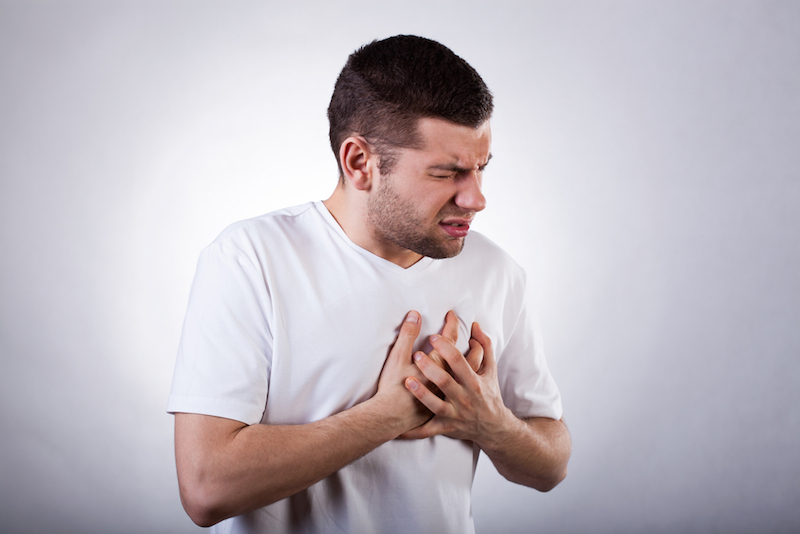26-Year-Old's Heart Attack Linked to Energy Drink

A healthy 26-year-old man in Texas who suffered a heart attack might be able to blame his condition on his daily habit of drinking energy drinks, according to a new report of the case.
The man told the health care workers who treated him that on the day of his heart attack he had downed eight to 10 energy drinks — and that he did that on most days, according to the case report. It's possible that the man's excessive energy drink intake caused a blood clot to form that partially blocked a blood vessel near his heart, leading to the heart attack, according to the case report.
"Energy drink consumption is a growing health concern due to limited regulation and increasing use, especially in younger demographics," the researchers wrote in the case report. "With substantially higher caffeine content than soft drinks or coffee beverages, as well as [containing] other poorly studied substances, there is significant potential for harm, especially when consumed in large quantities."
The man arrived at a hospital nine hours after he began having chest pain. His left arm felt numb, he was sweating profusely and he reported vomiting prior to his arrival at the hospital.
In addition to his daily energy-drink habit, he also said he had smoked a pack of cigarettes a day for the past two years. [5 Health Problems Linked to Energy Drinks]
Doctors treated the man for his heart attack, and he recovered. The patient went home from the hospital two days later. He said he would quit smoking and drinking energy drinks.
The excessive levels of caffeine and other potentially harmful substances in energy drinks may have reduced the blood flow in the man's coronary blood vessel to such an extent that a blood clot was able to form, causing the heart attack, according to the case report. However, it is also possible that the man's smoking led to the constriction of the coronary artery, the authors speculated. The man had no other apparent risk factors for heart attack beyond consuming a lot of energy drinks and smoking, the authors wrote.
Sign up for the Live Science daily newsletter now
Get the world’s most fascinating discoveries delivered straight to your inbox.
However, any report of a single case should be interpreted with caution, said Dr. Robert Ostfeld, a cardiologist and director of the Cardiac Wellness Program at Montefiore Medical Center in New York, who was not involved in the man's case. This patient's experience does not prove there is a cause-and-effect relationship between energy drink overuse and heart attack risk, Ostfeld said.
"Since it is just one case, it is always very hard to know exactly what the cause is," Ostfeld told Live Science. "It is certainly possible that [the heart attack] was related to the energy drink intake, but we could never know that for sure from a single case."
Ostfeld said he has heard of other reports of heart attacks being linked to energy drinks, and there have also been some reports linking energy drinks to temporary heart palpitations. It's possible that "energy drinks might transiently negatively impact blood vessel function, and make the blood more likely to clot," he said.
But even those several reports do not prove cause and effect, he said. Further studies are needed to confirm the link. The FDA is currently investigating some reports of adverse events associated with energy drinks, according to the agency.
Nonetheless, Ostfeld said, "it is hard to argue that [energy drinks] are healthy."
There are other ways for people to feel more energized. "If you are looking to have a lot of energy, get some sleep and eat a whole-food, plant-based diet," he said.
For example, beets have been associated with improving the efficiency of cells' mitochondria, which produce the energy that people's bodies run on, Ostfeld said.
The new case report was published online Feb. 6 in the journal Case Reports in Emergency Medicine.
Follow Agata Blaszczak-Boxe on Twitter. Follow Live Science @livescience, Facebook & Google+. Originally published on Live Science.









